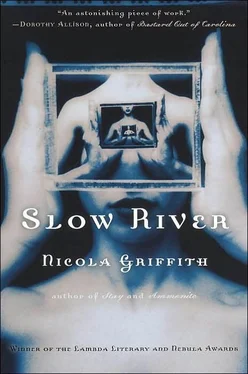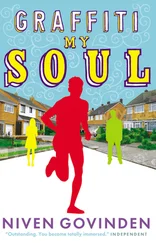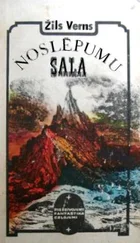* * *
It was a bright, sunny morning, cold in the metallic-tasting breeze but warm where the sun bounced off sandstone and pavement. I stopped in one of those sun traps on the way back from the shops and enjoyed the warmth while I could. It felt like a moment, a bubble stolen from the summer, as though maybe while someone had been away for July and August with their windows closed, the sun had heated their room, made it warm and round and smelling of dust and hot carpet, and then the flat owner had returned from a long holiday and opened the window and let out this last, little bit of sunshine. I didn’t want to go back to my flat and be alone all day.
I knocked on Tom Wilson’s door. “I bought some Lapsang souchong.”
“You’d best come in, then.” His eyes were bright, but he walked stiffly. “Sit down, sit down. The kettle’s boiled.” I sat while he fussed with trays and teapots and cups. His slippers shuffled as he carried everything carefully to the window-side table. I poured. “Now, then. What’s on your mind?”
“I need your help.”
He smiled. “Well, that’s gratifying.”
“What I want you to do isn’t exactly legal. That is, what I want you to do, here, wouldn’t break any laws, technically, especially if you said you didn’t know what it was all about—”
“You’re planning to get caught?”
“No.” I wished he wouldn’t yank me to a standstill like that.
“Glad to hear it. Is what you want to do dangerous?”
“Not physically, no.”
“Who will it hurt?”
Not Will it hurt anyone? but Who. He wasn’t smiling, exactly, but his sandy-gray eyebrows were slightly raised, and the deep lines in his cheeks were deeper. “Some people’s pride. A few very rich people who get their kick out of patronizing the poor, and the executives in charge of net security.”
“And who will it benefit?”
For one wild moment I wanted to treat him like a father confessor, pour out my whole life—the kidnap, the years with Spanner, the trouble I was in and how this might, once and for all, get me out, but then I realized I was looking for forgiveness, absolution. “Me. It will benefit me, and a friend, and you. If you decide to help.”
“Then tell me more.”
“Spanner and I are going to piggyback the net signal with a thirty-second commercial of our own. No one will know that it’s not genuine.” I told him about Stella, the fashions of the rich Almsgivers. “So we put our signal out there and these ghouls send money, which gets electronically shunted up, down, and sideways and pops out in the form of anonymous debits which we then take and spend. End of story, except that we need some footage we can’t get from the library. We… I need to film you.”
“Nice to be needed. But as you can see,” he gestured at his swollen knuckles, “I can’t always get out and about. Could you film it here?”
I nodded. “And I can doctor the disk, make it look as though I shot through a zoom—maybe through a window or something, without your knowledge. Just in case.”
“Good enough. What sort of things will I have to do?”
“The main thrust is going to be about how the elderly are feeling bemused by the world. I want to show how things have moved too fast for some.”
“The more things change, the more they stay the same.”
“Um,” I said, noncommittally.
“You don’t agree?” His hand shook a little as he put down his teacup. “Rape, murder, torture, it’s all been done before. Loneliness, joy, love—been around for thousands of years. Clothes are different, but there’s always been fashion. Food is different, but there’s always been taste and fads. Oh, there may be new ways to read books these days, there’s the net instead of radio and these silly PIDAs instead of a good leather wallet, but people don’t change. Not really.” He laughed. “The expression on your face! Live a few more years and you’ll find out. Nothing really changes.”
“But how did you feel when your money no longer worked and you had to get a PIDA?”
He shrugged. “It was twelve years ago. I was a bit uncertain at first: What if something went wrong in a computer and my account got tied up? How would I pay the rent then? But after a month or two I liked it. No more rushing to the bank. No more filling out bills. Everything’s so easy.”
“For some,” I said. “I heard a story once about when the book reader first came out, a young man gave one to his grandfather. He turned it on, pulled up a copy of To Kill a Mockingbird, and showed grandfather how to change the pages. Granddad said, ‘Thank you very much.’ The younger man left him happily reading. A year later, when he went back to visit, the young man found his grandfather reading the same book. ‘Wonderful thing, this reader,’.the old man said, ‘but I wish they’d brought out some different stories.’ The old man had no idea that there were nearly twenty thousand different books on that disk. That he could have bought hundreds of other disks, or simply downloaded others—anything at all—from the net. He was used to a book being immutable. The fact that the words on each side of the ‘page’ changed didn’t make a difference: this was To Kill a Mockingbird, so how could it be anything else?”
We looked at each other thoughtfully.
“Anyway,” I said, “that’s what I want to look at. And don’t worry about acting. All I want is some standard shots of you sitting, walking, talking, reading, eating. My programs can change your expression and put you in the street or whatever. I’ll give you ten percent of my cut.”
“When do you want to start?”
“How about now?”
Lore is midway between thirteen and fourteen. It has been months since Oster and Katerine have spoken to each other about anything but business. Now it is late spring and all of the immediate family except Greta are gathered together at Ratnapida for the first time in almost a year.
“I’ve ordered a picnic,” Oster tells them all. “We’ll take in the grounds, sit in the sun and relax together. No,” he says to Tok who is folding up his screen to take outside, “we’re going to leave all the bloody paraphernalia in the house for a change.”
They walk single file behind Oster, who is carrying the rug, to the pond, the ornamental one with the fountain. Lore assumes he has chosen this one, the first in a series that becomes progressively less formal, because Katerine hates the casual disorganization of nature. Lore knows they do sometimes think of one another, try to please each other, to find common ground, but they are like two planets following separate orbits.
It is a beautiful day; the sun is lemony and light, not too hot, and the grass is that particular lush bright green only seen when the first Rush of spring growth is ending. Everything should be perfect, and everyone tries—lots of oohs and ahs about the food, some conversation about the two-year lawsuit against the company, which is nearing its climax in Caracas—but it is an effort. Lore watches Katerine stare into the distance, then reach to her belt for the slate that is not there before she remembers she is supposed to be relaxing. Tok sits on the grass, just outside the intangible circle of family on the rug. Every now and then he reaches to the plate in front of him and picks up some rice salad between his fingers, but most of his attention is focused on the pile of twigs and leaves and a pebble before him. Lore wonders what he is making, but Oster is in the way.
Oster is talking to Stella, who is sitting on the stone rim of the fountain, drinking straight from a bottle of vodka. This month, Stella’s hair is layered: bruise purple on top and underneath—when she lifts her head to swallow—red, then ocher, then white. Unnerving, like splitting open a bruise with a scalpel, seeing blood, fatty tissue, bone.
Читать дальше












